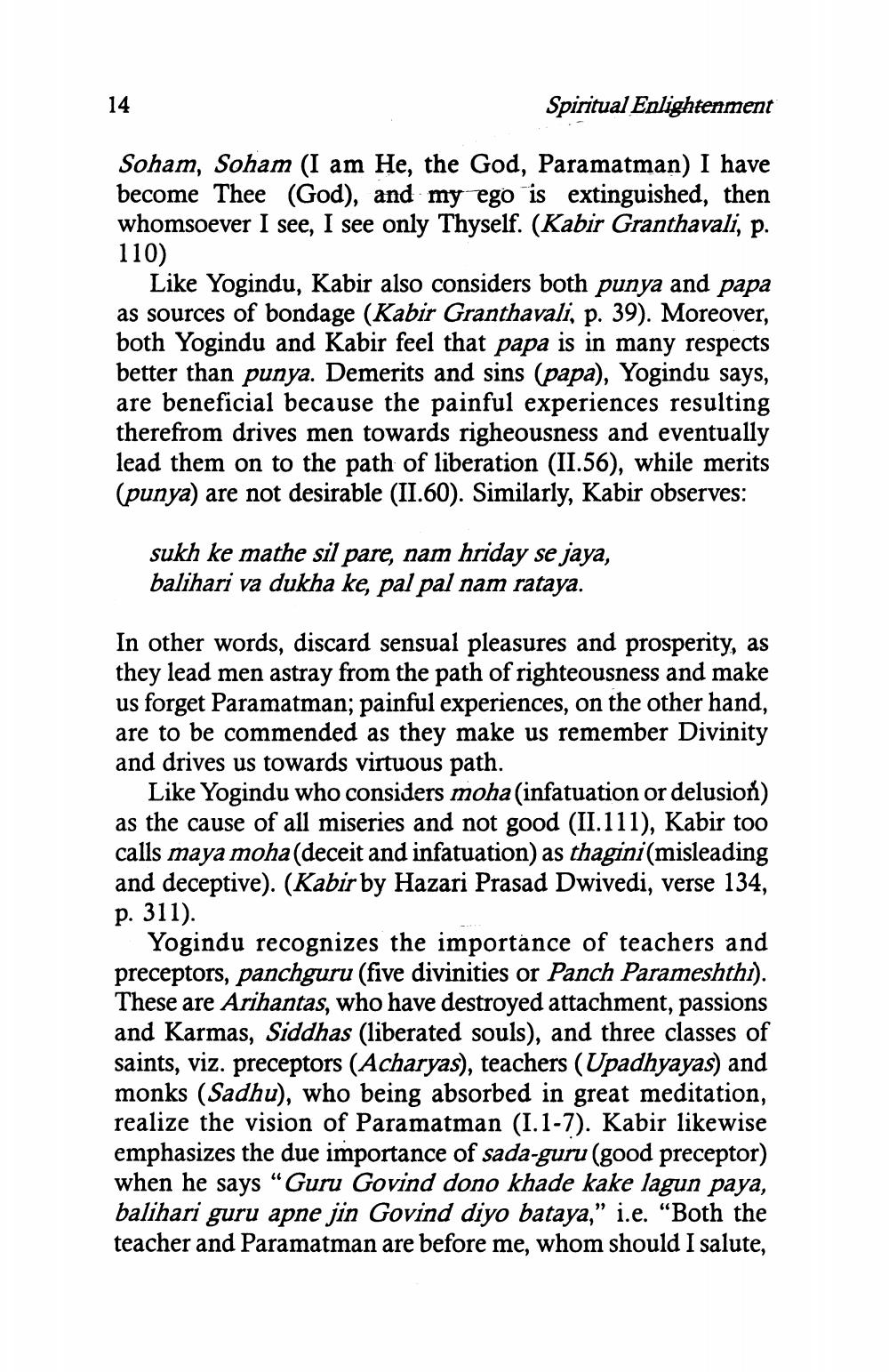________________
14
Spiritual Enlightenment
Soham, Soham (I am He, the God, Paramatman) I have become Thee (God), and my ego is extinguished, then whomsoever I see, I see only Thyself. (Kabir Granthavali, p. 110)
Like Yogindu, Kabir also considers both punya and papa as sources of bondage (Kabir Granthavali, p. 39). Moreover, both Yogindu and Kabir feel that papa is in many respects better than punya. Demerits and sins (papa), Yogindu says, are beneficial because the painful experiences resulting therefrom drives men towards righeousness and eventually lead them on to the path of liberation (II.56), while merits (punya) are not desirable (II.60). Similarly, Kabir observes:
sukh ke mathe sil pare, nam hriday se jaya, balihari va dukha ke, pal pal nam rataya.
In other words, discard sensual pleasures and prosperity, as they lead men astray from the path of righteousness and make us forget Paramatman; painful experiences, on the other hand. are to be commended as they make us remember Divinity and drives us towards virtuous path.
Like Yogindu who considers moha (infatuation or delusion) as the cause of all miseries and not good (II.111), Kabir too calls maya moha(deceit and infatuation) as thagini(misleading and deceptive). (Kabir by Hazari Prasad Dwivedi, verse 134, p. 311).
Yogindu recognizes the importance of teachers and preceptors, panchguru (five divinities or Panch Parameshthi). These are Arihantas, who have destroyed attachment, passions and Karmas, Siddhas (liberated souls), and three classes of saints, viz. preceptors (Acharyas), teachers (Upadhyayas) and monks (Sadhu), who being absorbed in great meditation, realize the vision of Paramatman (I.1-7). Kabir likewise emphasizes the due importance of sada-guru (good preceptor) when he says “Guru Govind dono khade kake lagun paya, balihari guru apne jin Govind diyo bataya," i.e. “Both the teacher and Paramatman are before me, whom should I salute,




